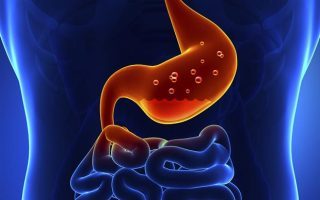- Home
- Editorial
- News
- Practice Guidelines
- Anesthesiology Guidelines
- Cancer Guidelines
- Cardiac Sciences Guidelines
- Critical Care Guidelines
- Dentistry Guidelines
- Dermatology Guidelines
- Diabetes and Endo Guidelines
- Diagnostics Guidelines
- ENT Guidelines
- Featured Practice Guidelines
- Gastroenterology Guidelines
- Geriatrics Guidelines
- Medicine Guidelines
- Nephrology Guidelines
- Neurosciences Guidelines
- Obs and Gynae Guidelines
- Ophthalmology Guidelines
- Orthopaedics Guidelines
- Paediatrics Guidelines
- Psychiatry Guidelines
- Pulmonology Guidelines
- Radiology Guidelines
- Surgery Guidelines
- Urology Guidelines
Proton pump inhibitor use may lead to hepatic encephalopathy, death in cirrhosis patients

Rome, Italy: The use of PPIs or proton pump inhibitors -- drugs used for the treatment of acid-related disorders -- is associated with the development of overt hepatic encephalopathy (HE) and increased deaths in patients with liver cirrhosis.
These are the findings of a recent study published in the journal Hepatology.
In India, the most common causes of cirrhosis are alcoholism abuse and viral hepatitis. The complications of cirrhosis pose major health problems but hepatic encephalopathy is a life-threatening complication of cirrhosis. Hepatic encephalopathy is a decline in brain function that occurs as a result of a severe liver disease when the liver can’t adequately remove toxins from blood thereby causing a buildup of toxins in the bloodstream leading to brain damage.
Proton pump inhibitors can contribute to bacterial overgrowth in the small intestine, but no study has investigated the link between PPIs and MHE. Silvia Nardelli, University of Rome, Rome, Italy, and colleagues investigated the relationship between MHE and PPI use as well as the role of PPI use in the development of overt HE and survival.
Proton pump inhibitors (PPIs) can contribute to small-bowel bacterial overgrowth, but no study has investigated the link between PPIs and MHE. We investigated the relationship between minimal hepatic encephalopathy (MHE) and proton pump inhibitor use as well as the role of PPI use in the development of overt HE and survival.
The study included 310 cirrhosis patients who were followed up to up for 14.1 ± 12.3 months. At entry, MHE was diagnosed when the Psychometric Hepatic Encephalopathy Score was ≤–4. Data were analyzed by logistic regression for the factors associated with MHE and by time‐related models for overt HE development and survival.
Also Read: Constipation and Upper GI bleed precipitate Hepatic encephalopathy in cirrhosis
Key findings include:
- At inclusion, 131 out of 310 patients with cirrhosis (42%) were affected by MHE. One hundred and twenty‐five patients (40%) were using PPIs.
- The variables independently associated with the presence of MHE were PPI use, previous overt HE, low albumin, low sodium, and age.
- During follow‐up, the development of overt HE was higher (64% versus 25%, P < 0.001) and overall survival lower (41% versus 81%) in PPI users than in nonusers.
- Variables independently associated with the development of overt HE were PPIs, history of overt HE, low albumin, MHE, and age, while variables independently associated with mortality were PPIs, development of overt HE, Model for End‐Stage Liver Disease score, low sodium, and age.
Also Read: Warning! PPI use linked to premature death from CVD, cancer: BMJ
"The study identifies a potentially removable factor associated with the presence of MHE and related to the development of overt HE and survival in patients with liver cirrhosis," concluded the authors.
To read the complete study log on to https://doi.org/10.1002/hep.30304

Disclaimer: This site is primarily intended for healthcare professionals. Any content/information on this website does not replace the advice of medical and/or health professionals and should not be construed as medical/diagnostic advice/endorsement or prescription. Use of this site is subject to our terms of use, privacy policy, advertisement policy. © 2020 Minerva Medical Treatment Pvt Ltd